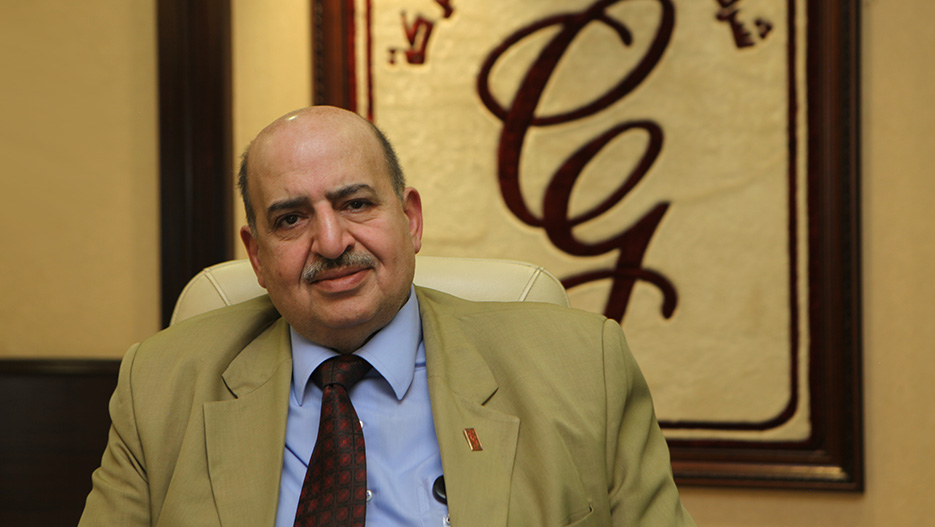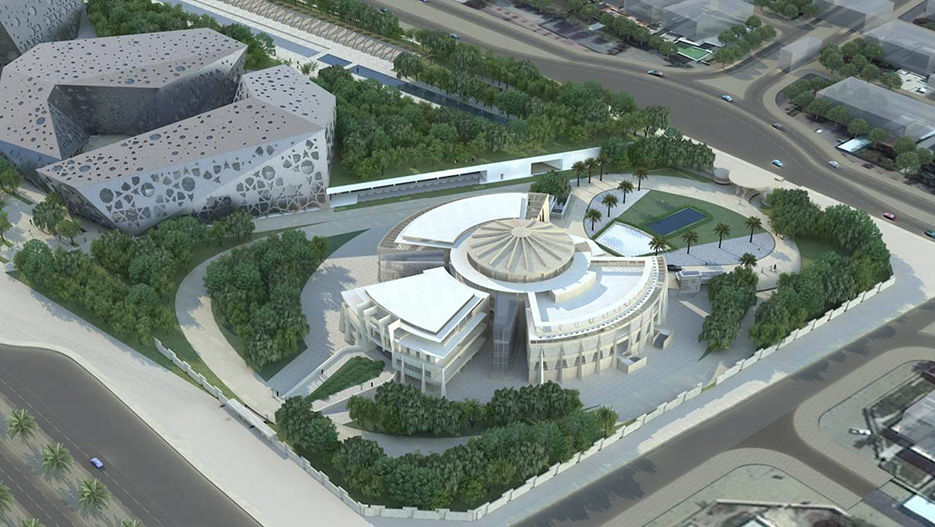Key Infrastructure Projects Contractor in Kuwait: Combined Group
“Our vision is to be one of the ten biggest contracting companies in not only the Gulf area, but throughout the Middle East.”
Interview with Dr. Nabeel Abdul Haleem Ali, Consultant to Chairman for Shareholders Affairs at Combined Group

What is your evaluation of the current state of the contracting sector in Kuwait? What are the major projects that Combined Group is participating in?
We are participating in many sectors, such as construction, roads, oil, bridges, and infrastructure. We participate in any projects announced through the CTC. The value of the projects varies for each sector. The sectors which the greatest value are roads and bridges, followed by the oil sector, construction, building, and lastly, other divisions. We have bid the lowest price for many major projects that we expect to receive letters of intent for within the next two months. Some examples are Tender #242, which is a large road, valued at 197.9 million KD for a duration of 48 months. Another is Tender #RFP2037219 in the oil sector, with a value of 72.9 million KD, for a duration of five years. Another road we have is through the Ministry of Public Works and it is valued at 108.8 million KD. For this project, we participated as an agent of China First Highway Engineering Company, which is an international company with experience in executing large projects such as these. We also have plans for a large building in the Ministries Complex that is being coordinated with the Ministry of Finance.
What are your major competitors in Kuwait?
Our main competitors in Kuwait are Mushrif, Kharafi National, Al Ahmadiah, and Gulf Construction Company.
Our vision is to be one of the ten biggest contracting companies in not only the Gulf area, but throughout the Middle East.
You also have projects in Qatar and even Albania. Are you currently looking into other markets?
No, we have completed our expansion. We have subsidiary companies and branches in Qatar, UAE, Abu Dhabi, and Dubai. We have branches in Saudi Arabia, the Sultanate of Oman, and most recently in Bahrain. We cover the entire Gulf area. We did work on a project in Albania, but it was a joint venture with a company there executing it. We have had good experiences executing large projects in Indonesia, Uzbekistan, and Georgia.
How do you differentiate yourself from competitor companies?
We have many other companies competing with us for tenders published through the CTC. Based on our past experience, we know how to price the tender quite well. Sometimes, we lose the bid, but more often we win.
What certifications does Combined Group hold?
We currently hold ISO 9001 certification, ISO 14001 for environmental, and certification from OHSAS for safety and security. We have three certificates recognized, currently. We are also under audit from these organizations. Every six months, they send auditors to check our quality systems and to assure that we are abiding by all the rules of the system itself.

What internal and external challenges does your company face?
Externally, we have much competition from small companies. Essentially, they are breaking the prices for the projects. For instance, an owner has a budget of 100 million KD and they put it in a tender officially through the Central Tender Committee. Some of these not very reputable, smaller companies are competing by submitting their bid for far less than the budget. For a budget of 100 million KD, they are submitting bids for only 80 or 70 million KD. If you calculate the major elements of cost for that project, comprising materials, labor, equipment, subcontractors and other expenditures, it would never be feasible for that price. After they win the project, while they are executing it, they face many problems. Sometimes, the owner stops dealing with them, takes penalties, then has to shift the project to another contractor. Another challenge we have here in Kuwait is the circulation of documentation. In order to get the project or tender itself, it must go through many different channels, such as the CTC, the Kuwait Audit Bureau, or even the Minister of Finance for budget approval. The circulation itself takes a great deal of time. If we submit our bid and the Central Tender Committee announces that we are the lowest and orders the letter of intent, it can take four months or more. Another obstacle is the signing of the contract. Once we have received the letter of intent, the signature of the authorized person on the other side can take a long time. Sometimes, we are waiting for the Minister, himself, because he is the only one who is authorized to sign for that specific value. Another issue is the constant increase in the price of raw materials. During the pricing of any tender, the cost element comprises the materials, labor, equipment, and subcontractors. The materials represent 40 to 50 percent of the entire project and that price depends on the materials being imported. The prices continue to increase. The owners are not compensating us for these issues.
What is your personal vision for the Group in the medium term of one to two years’ time?
Our vision is to be one of the ten biggest contracting companies in not only the Gulf area, but throughout the Middle East. We have a timeframe, but there are certain problems that we continue to encounter in reaching our target. We have faced issues in both Saudi Arabia and Qatar regarding the payment of the presage of work from the government itself. They are not releasing our money, which amounts to millions of KD. In Saudi Arabia, we were not paid the advance payment for one of our projects. Advance payment is where the client pays ten to twenty percent in advance, in order to assist the contractor during the mobilization period. It is normal practice for any project we do, and it is in the contract itself. Even still, we have not received anything. Whether this is due to a budget problem or some other issue, we have not been told. We have had the same issue in Qatar. We do not have this issue in Kuwait. If we execute any project for The Ministry of Public Works, they pay according to the agreement. We want to expand and we are a reputable company. How are we going to succeed in Saudi Arabia and Qatar without receiving our dues? The timeframe to reach our goals is very much affected by these obstacles.
FAIR USE POLICY
This material (including media content) may not be published, broadcasted, rewritten, or redistributed. However, linking directly to the page (including the source, i.e. Marcopolis.net) is permitted and encouraged.